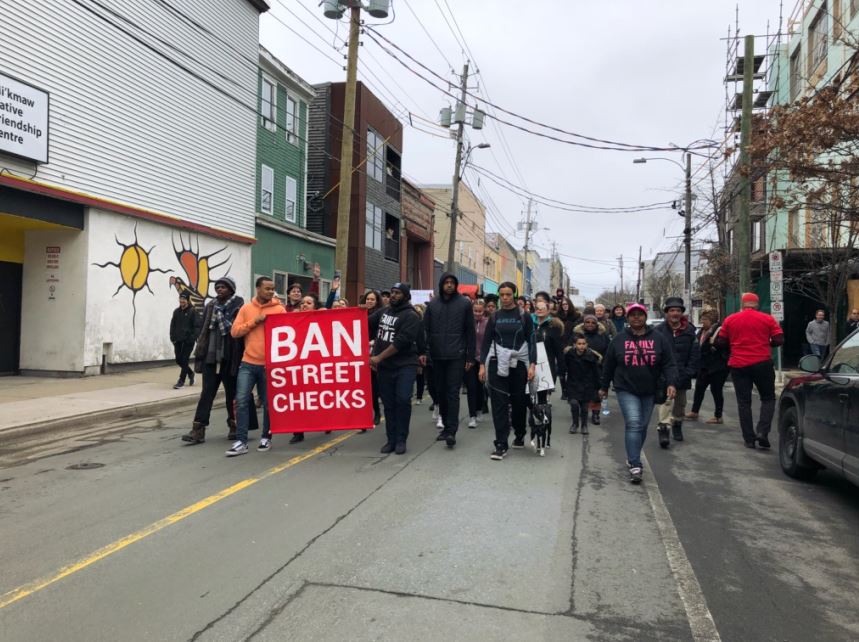Nova Scotia Justice Minister Mark Furey has directed police forces across the province to immediately suspend street checks of pedestrians and passengers in motor vehicles, but stopped short on an outright ban of the controversial practice.

The decision was unveiled Wednesday afternoon, three weeks after the release of an independent report that recommended banning or strictly regulating street checks in Nova Scotia.
Furey says the moratorium protects people from street checks in public areas, such as parks, “provided there is no suspicious or illegal activity.”
“The inappropriate use of street checks is alarming and unacceptable,” Furey said in a statement Wednesday. “Public trust in policing is essential. We need to address the fear and mistrust that street checks have caused for many in the African Nova Scotian community.”
“I have expressed my disappointment to the African Nova Scotia community and I cant apologize on behalf of everyone, but they know how I feel about this subject and the corrective action we have to take going forward.”
The Nova Scotia government missed its target last week for a decision on street checks. Furey said he needed more time in order to understand the true definition and intent of a street check.
He stated that would allow for new rules to be written with improved accuracy.
Last month’s 180-report by the Nova Scotia Human Rights Commission in 2017 found that street checks by Halifax-area police have had a “disproportionate and negative” impact on the African Nova Scotia community.

Get breaking National news
It also found that black males were nine times more likely to be stopped by police than the general population, and street check rates in Halifax were among the highest in Canada — second only to Toronto.
WATCH: Nova Scotia punts police street check decision by another week (April 12, 2019)

Scot Wortley, the report’s author and a University of Toronto criminology professor, said “street checks have contributed to the criminalization of black youth, eroded trust in law enforcement and undermined the perceived legitimacy of the entire criminal justice system.”
The report recommended that street checks be limited or outright banned.
READ MORE: N.S. justice minister orders police to end street checks as ‘quota’ system or ‘performance tools’
A day after the report was released, Furey directed police forces across the province to immediately cease using street checks — but only for quota or data purposes.
But that decision wasn’t enough for many, with over 100 protesters taking the streets of Halifax the following weekend to call for an outright ban on the controversial police practice.
Furey’s decision Wednesday states police will continue to conduct traffic stops to ensure compliance under the Motor Vehicle Act and the Criminal Code.
“Police can stop a vehicle to ensure the motorist has a valid driver’s licence, registration, proof of insurance and an up-to-date motor vehicle inspection. Police can also conduct a sobriety check or inquire into suspicious activity,” the statement reads.
“Police can interact with citizens as part of their duties, but drivers are not obligated to provide unrelated personal information.”
Furey added that strict regulation of street checks will “strike the delicate balance between protecting individual liberties and police responsibilities.”
Nova Scotia NDP justice spokesperson Claudia Chender said the street check moratorium is a “long overdue, necessary first step in addressing the discriminatory practice of street checks.”
“The minister and police across the province must now do the work to build trust with the African Nova Scotian community and ensure that there is real change that eliminates systemic racism in our policing,” Chender stated.
In a statement Wednesday afternoon, Halifax Regional Police Acting Chief Robin McNeil confirmed they are taking the necessary steps to implement the moratorium.
— With files from Elizabeth McSheffrey









Comments